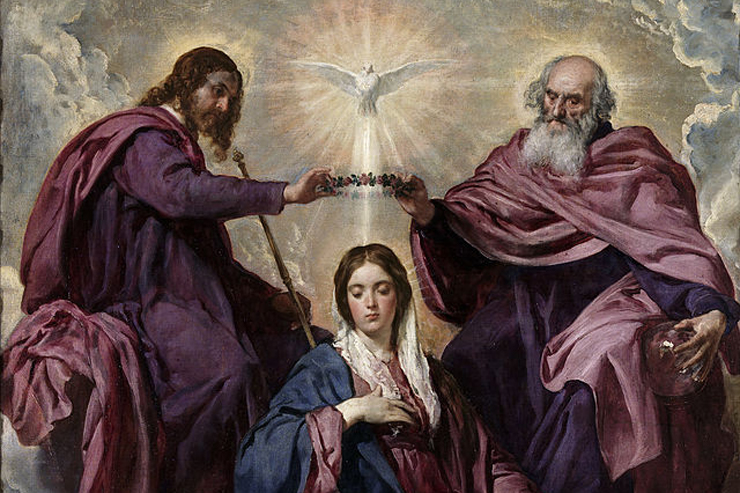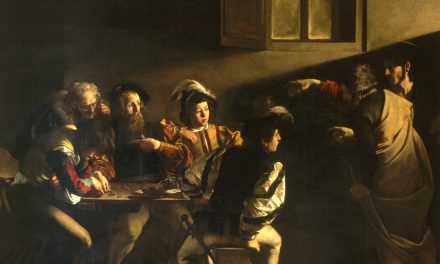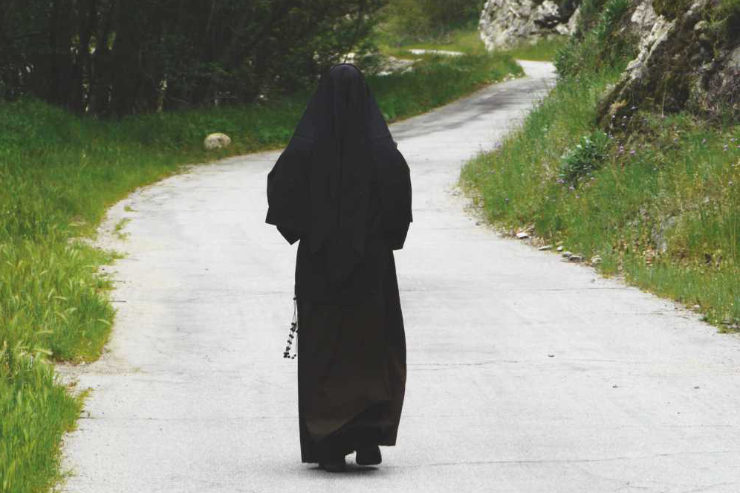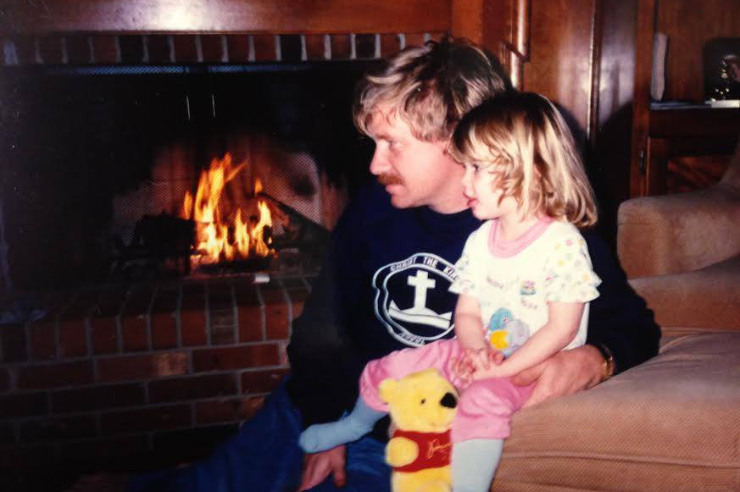It is an odd time to be a woman. Never before have women had the freedom and opportunities that I have; at the same time, never before has the identity of woman been so confused. It is no surprise, then, that Pope Francis has called for a “theology of woman.”
The purpose of the Women’s March on Washington still remains somewhat enigmatic to me. I too want to celebrate the dignity of woman, but I can’t reconcile celebrating my dignity with the complete rejection of what makes me a woman.
The day before the marches were held in Washington and throughout the country, Pope Francis granted an interview to a Spanish news outlet, El Pais. One of his quotes has been overlooked, probably because people want to focus on what he said about Donald Trump, and possibly because it was towards the end of the lengthy interview. He was asked about the role of women in the Church. It is not the first time this question was asked of him, and he reiterated what he has said previously. Instead of lowering the bar by simply considering what women can do in the Church, he wants something richer:
“We must not look at the role of women from a functional point of view, because that way, in the end, the women, or the women’s movement in the Church, will be some sort of chauvinism in skirts. The functional aspect is all right. The deputy director of the press room at the Vatican is a woman, the director of the Vatican Museums is a woman. But what I want is for women to give us their thinking, because the Church is female, the Church is Jesus Christ’s wife, and that is the theological foundation of women. What was more important on Pentecost, the Virgin or the apostles? The Virgin. There is a long way ahead yet, and we must work so that women may give to the Church the freshness of their being and their thinking.”
He was essentially repeating what he had said several years ago, a quote that similarly has been overlooked because of his other responses that day. His lengthy exchange with reporters on the way back from Brazil was quickly defined as the “who am I to judge” interview, and what he said about women was lost and ignored in the aftermath.
“I think we must go further in making the role and charism of women more explicit … I think we have not yet made a profound theology of woman in the Church. … It can’t just be about their acting as altar servers, heads of Caritas, catechists… No! They have to be more, profoundly more, even mystically more, along with everything I said about the theology of womanhood.” He repeated the position of the Church that there could not be female priests, then repeated, “Our Lady, Mary, was more important than the Apostles, than bishops and deacons and priests. Women, in the Church, are more important than bishops and priests; how, this is something we have to try to explain better, because I believe that we lack a theological explanation of this.”
It is time to stop looking at what we aren’t and to start looking at what we are. We will never be priests because we will never be men. But this shouldn’t disturb us, because we are called to a much more powerful role. Far from demeaning us, the Church wants to elevate us even higher…but that greater role requires us to accept our identity as women.
As we saw at the women’s marches on Saturday, the modern feminist movement has tried to reject the differences between men and women. By pushing abortion to the forefront of those marches, the message became loud and clear: the only rights of women that matter are our rights to control our fertility.
Our fertility can be terribly inconvenient, so it must be our right to eliminate that fertility so that we can be equal to men. But in doing so, we squash the gift of God that gives us our dignity as women. We have an intellect and will, we are made in the image and likeness of God, we are equal to men, we have dignity as human persons. But we alone have the ability to nurture a human before he even breathes air.
“Many things can change and have changed in cultural and social evolution, but the fact remains that it is woman who conceives, carries and delivers the children of men. And this is not merely a biological fact; it entails a wealth of implications both for woman herself, her way of being, and for her relationships, her relation to human life and to life in general. In calling woman to motherhood, God entrusted the human being to her in an entirely special way.” (Pope Francis, on the Twenty-fifth Anniversary of Mulieris Dignitatem)
Francis is echoing the truths that John Paul II explored in his Theology of the Body, truths that remind us that the difference between man and woman are not arbitrary, but inherent. Our very bodies as women are made for receptivity and to recognize and nurture a person. On a physical level, these bodies are created to receive our husband, and, as a result, to nurture a person within our very selves. This physical reality impacts, then, how we relate to the world, regardless of whether we as individual women are physical wives and mothers or not.
Our motherhood is not a side aspect of our identity as women. It is not just a bi-product of our physical makeup. It is intrinsic to who we are as women. Our body “speaks” the language, John Paul would say, of receptivity, of receiving and cultivating.
This is why Pope Paul VI charged us, “You women have always had as your lot the protection of the home, the love of beginnings and an understanding of cradles. You are present in the mystery of a life beginning. You offer consolation in the departure of death. Our technology runs the risk of becoming inhuman. Reconcile men with life and above all, we beseech you, watch carefully over the future of our race. Hold back the hand of man who, in a moment of folly, might attempt to destroy human civilization.”
It is a high calling, and it is not a mission that can be accepted by rejecting our fertility. It is a mission that can only be accepted by accepting precisely that which makes us female.
The quote above comes from an oft-forgotten address of Pope Paul VI to women at the close of the Second Vatican Council. It is well-worth a look, and even more worth some ample meditation. Pope Paul VI recognized what was happening in the culture, and turned to women to, quite literally, save the world. Recognizing, perhaps, the dichotomy I began this post with, he urged us:
“But the hour is coming, in fact has come, when the vocation of woman is being achieved in its fullness, the hour in which woman acquires in the world an influence, an effect and a power never hitherto achieved. That is why, at this moment when the human race is under-going so deep a transformation, women impregnated with the spirit of the Gospel can do so much to aid mankind in not falling.”
The world was changing, and Paul VI understood that the Rubicon was being crossed. He was a voice crying out to stop the forces of sexualized secularism, materialism, and false feminism. But he was not heeded. His words did not even reach the women of the world, who were fed lies from the media, the academia, and, most tragically and diabolically, the pulpits.
But fellow women, it is not too late. It is time to heed the call of Paul VI. Countless women already have. Most of them aren’t making the front page of newspapers. Rather, they are quietly living the Gospel in the places they find themselves: whether it’s through the evangelical counsels in religious life, raising children in the often-thankless vocation of motherhood, and/or bringing the Christian message into the workplace.
Look around you at Mass next Sunday, and you’ll see these women that Paul VI is calling to save the world. We are married, single, consecrated, divorced, and widowed. We are young and old. We are striving to be saints, failing, and struggling to get back up. We are trying to listen to the Church and trying to love our God. We may not be changing the world in big ways, but we are trying to save one soul at a time.
We cannot do it alone. We must do it under the guidance and protection of Mary our Virgin Mother. There is no greater disciple of Christ, no greater person in the history of the world, than this humble woman. In a culture that rejects the foundation of our vocation, may she be our example of what it means to be a woman, and what that identity calls us to do:
“Women of the entire universe, whether Christian or non-believing, you to whom life is entrusted at this grave moment in history, it is for you to save the peace of the world” (Paul VI, Address to Women).















